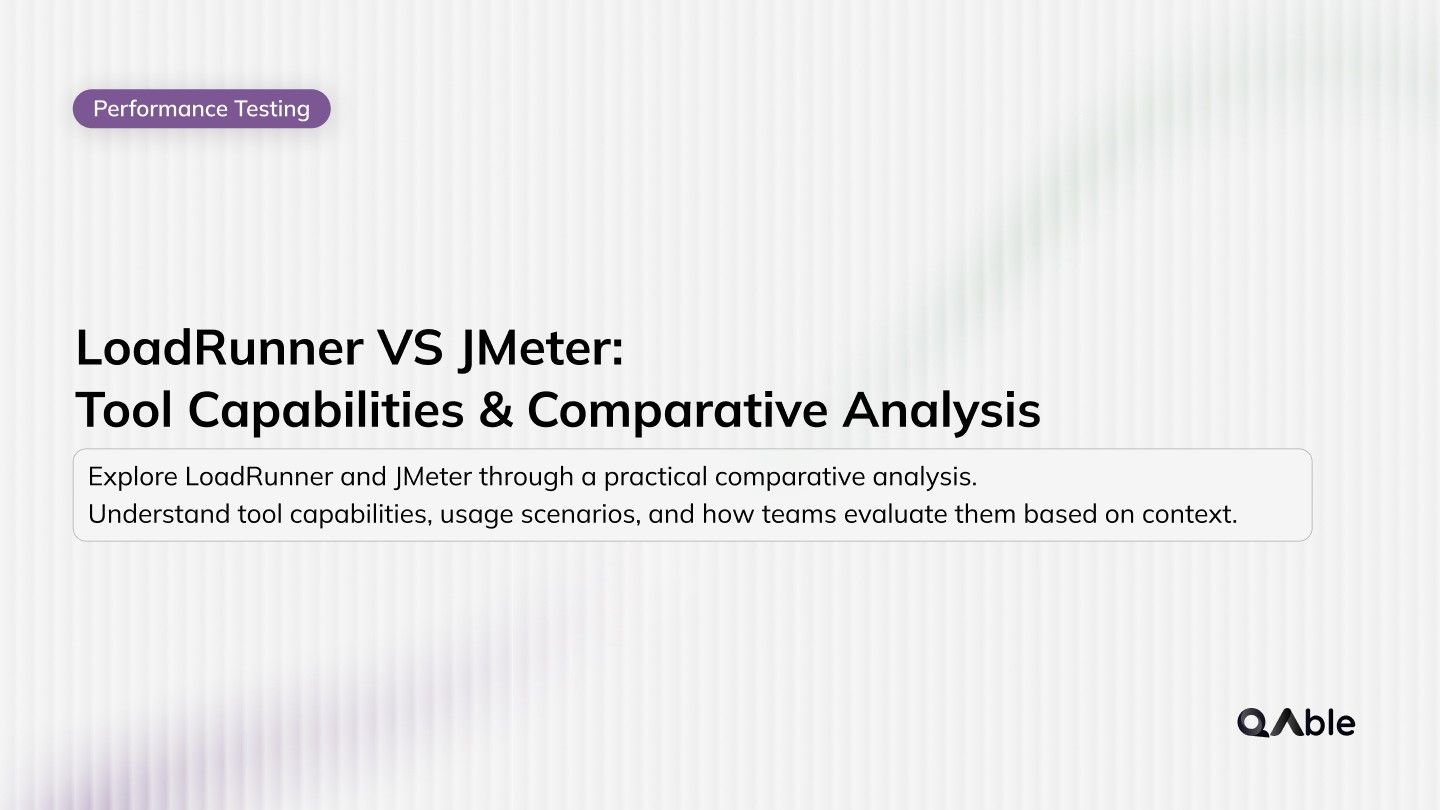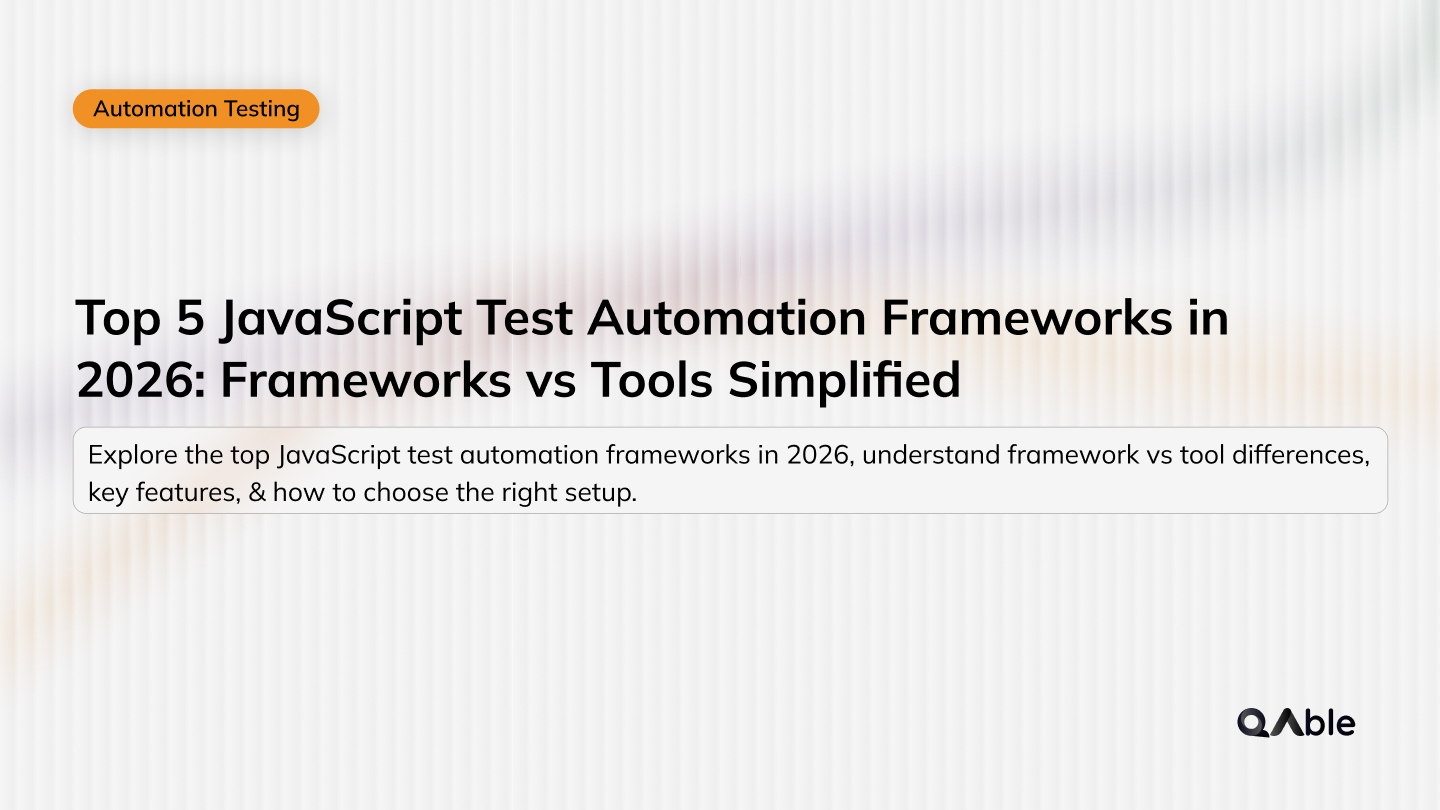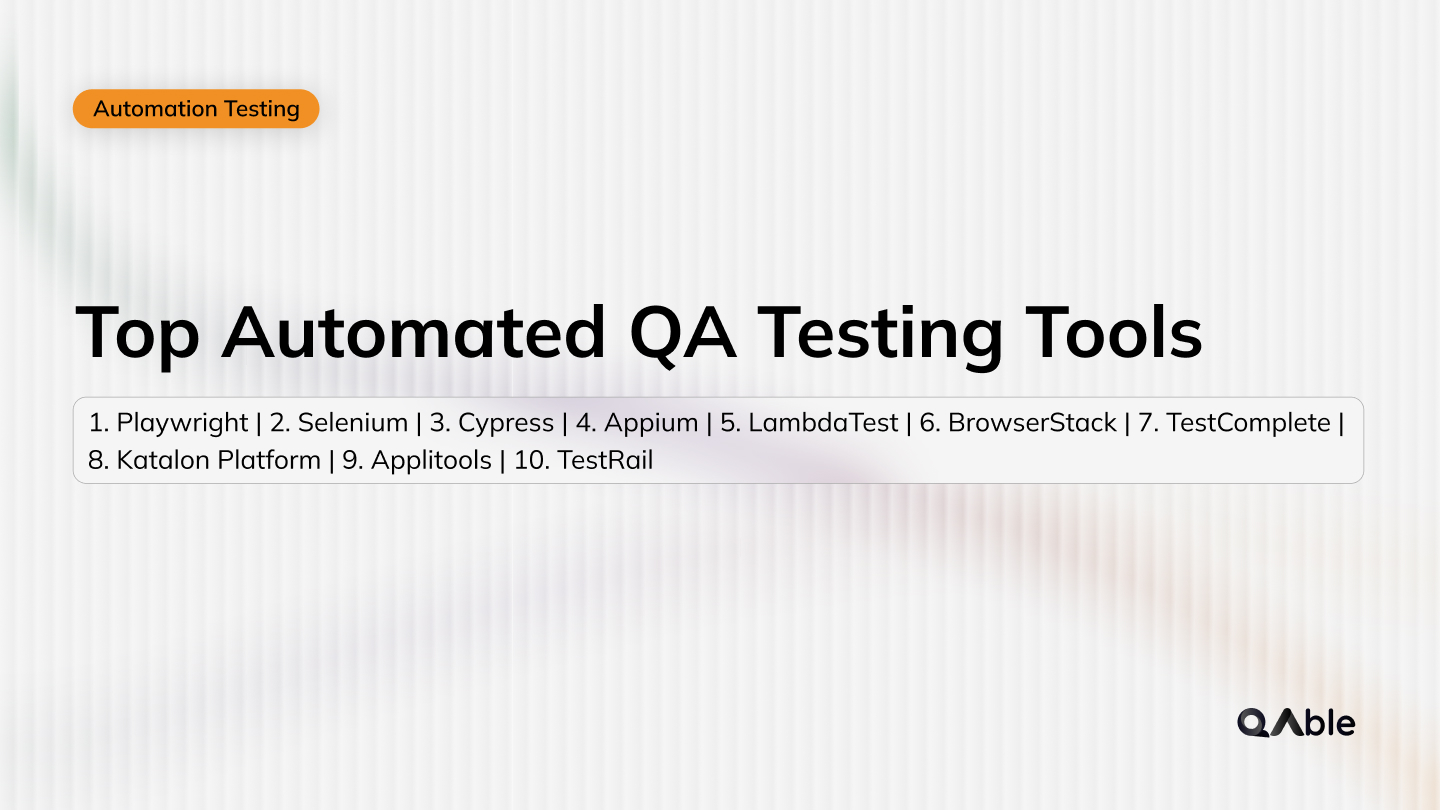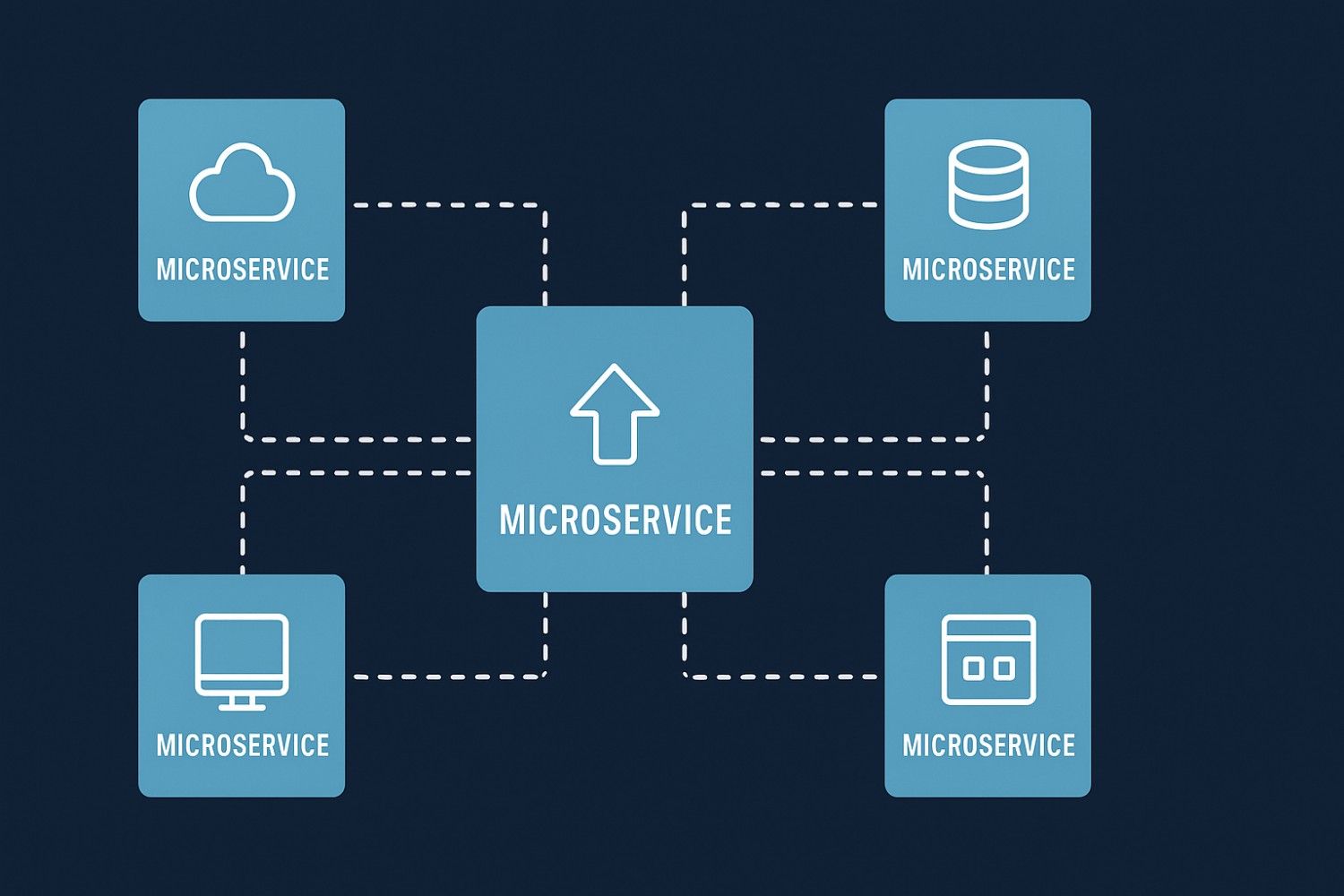Table of content
SHARE THIS ARTICLE
Is this blog hitting the mark?
Contact Us
Table of Content
- What is ERP testing and how is it done?
- Which tool is best for ERP testing?
- Inspiring ERP software testing examples for enterprises
- Conclusion
- FAQs
ERP software testing is a process of verifying the functionality, performance, and integration of an enterprise resource planning (ERP) system, which is a software that manages the core business processes of an organization, such as accounting, finance, human resources, manufacturing, etc
ERP software testing is important because it ensures that the ERP system meets the specific needs and requirements of the organization, and that it works as expected without any errors or defects. ERP software testing also helps to improve the quality, reliability, and efficiency of the ERP system, and to avoid any potential risks or losses due to system failures
In this blog post, we will explore some of the inspiring ERP software testing examples for enterprises, and how they have successfully implemented ERP and mitigated major risks associated with large-scale software implementations.
What is ERP testing and how is it done?
ERP testing is a type of software testing that involves testing the ERP system as a whole, as well as its individual modules, components, and interfaces. ERP testing aims to validate the following aspects of the ERP system:
Functionality: The ERP system should perform all the functions that it is supposed to do, according to the business requirements and specifications.
Performance: The ERP system should deliver optimal performance in terms of speed, scalability, and stability, under different workloads and scenarios.
Integration: The ERP system should integrate seamlessly with other systems and applications, both internal and external, and exchange data accurately and securely.
Security: The ERP system should protect the data and the transactions from unauthorized access, modification, or deletion, and comply with the relevant standards and regulations.
Usability: The ERP system should provide a user-friendly and intuitive interface, and a smooth and consistent user experience.
ERP testing is done by following a structured and comprehensive testing strategy, which includes the following steps:
- Planning and designing: The test manager and the test team plan and design the test strategy and the test cases based on the business processes and workflows of the organization, and the features and functionalities of the ERP system.
- Preparing and executing: The test team prepares the test environment, the test data, and the test tools, and executes the test cases on the ERP system, using both manual and automated testing methods.
- Reporting and tracking: The test team reports and tracks the test results and the defects, and provides feedback and recommendations for improvement to the developers and the stakeholders.
Also read: What is the Difference Between Agile Testing and Waterfall Testing?
Which tool is best for ERP testing?
There are many tools available for ERP testing, both commercial and open-source, that can help the test team to perform various types of testing on the ERP system, such as functional testing, integration testing, performance testing, security testing, regression testing, and user acceptance testing. Some of the best tools for ERP testing are:
SAP Testing
SAP Testing is a tool that is specifically designed for testing SAP ERP systems, which are widely used by many enterprises. SAP Testing provides a comprehensive and integrated testing solution that covers all the aspects of SAP testing, such as test planning, test design, test execution, test automation, test reporting, and test management.
OpKey
OpKey is a tool that supports testing of various ERP systems, such as Oracle, Microsoft Dynamics, Salesforce, etc. OpKey provides a cloud-based and codeless testing platform that enables the test team to create and execute test cases easily and quickly, using a drag-and-drop interface and pre-built keywords. OpKey also supports test automation, test orchestration, test analytics, and test collaboration.
TestMonitor
TestMonitor is a tool that simplifies the testing of ERP systems, by providing a user-friendly and structured testing approach. TestMonitor helps the test team to define the test requirements, design the test scenarios, execute the test cases, report the test results, and manage the test issues, using a web-based and collaborative testing environment. TestMonitor also supports test automation, test integration, and test feedback.
Also read: Salesforce Testing (With Test Cases and Tools)
Inspiring ERP software testing examples for enterprises
Here are some of the inspiring ERP software testing examples for enterprises, that showcase how they have successfully implemented ERP and achieved their business goals and objectives.
Amazon
Amazon is one of the largest and most successful e-commerce companies in the world, that offers a wide range of products and services to its customers.
Amazon uses SAP as its ERP solution, which helps it to manage its financial accounting, invoice verification, inventory management, logistical business needs, and human resources. Amazon has implemented SAP testing to ensure that its ERP system is functioning properly and efficiently, and to avoid any errors or issues that could affect its operations and customer satisfaction.
Amazon has used both manual and automated testing methods, and has leveraged the SAP testing tools and frameworks, such as SAP Solution Manager, SAP Test Acceleration and Optimization, and SAP Quality Center, to perform various types of testing on its ERP system, such as functional testing, integration testing, performance testing, and regression testing.
Starbucks
Starbucks is one of the largest and most popular coffeehouse chains in the world, that offers a variety of beverages and food items to its customers.
Starbucks uses Oracle as its ERP solution, which helps it to manage its supply chain, procurement, finance, and human resources. Starbucks has implemented Oracle testing to ensure that its ERP system is meeting its business requirements and expectations, and to improve its quality and efficiency.
Starbucks has used both manual and automated testing methods, and has leveraged the Oracle testing tools and frameworks, such as Oracle Application Testing Suite, Oracle Load Testing, and Oracle Test Manager, to perform various types of testing on its ERP system.
Walmart
Walmart is one of the largest and most successful retail companies in the world, that offers a wide range of products and services to its customers. Walmart uses Microsoft Dynamics as its ERP solution, which helps it to manage its sales, marketing, customer service, finance, and operations.
Walmart has implemented Microsoft Dynamics testing to ensure that its ERP system is delivering optimal performance and reliability, and to enhance its customer service and satisfaction.
Walmart has used both manual and automated testing methods, and has leveraged the Microsoft Dynamics testing tools and frameworks, such as Microsoft Test Manager, Microsoft Visual Studio, and Microsoft Coded UI, to perform various types of testing on its ERP system.
Also read: How to Find the Right Software Testing Partner
Conclusion
ERP software testing is a vital and challenging process that requires a lot of planning, preparation, and execution. ERP software testing helps to ensure that the ERP system is working as intended, and that it is meeting the business needs and goals of the organization. ERP software testing also helps to improve the quality, efficiency, and security of the ERP system, and to prevent any potential risks or losses due to system failures.
There are many tools and frameworks available for ERP testing, that can help the test team to perform various types of testing on the ERP system. Some of the best tools for ERP testing are SAP Testing, OpKey, and TestMonitor.
We have also seen some of the inspiring ERP software testing examples for enterprises, such as Amazon, Starbucks, and Walmart, that showcase how they have successfully implemented ERP and achieved their business goals and objectives.
We are software testing company in India that can help you with your ERP testing needs.
Thank you for reading.
Discover More About QA Services
sales@qable.ioDelve deeper into the world of quality assurance (QA) services tailored to your industry needs. Have questions? We're here to listen and provide expert insights


Nishil Patel is the Co-founder of QAble, delivering advanced test automation solutions with a focus on quality and speed. He specializes in modern frameworks like Playwright, Selenium, and Appium, helping teams accelerate testing and ensure flawless application performance.
.svg)














.webp)
.webp)
.png)
.png)











.png)



.png)

.png)

.png)






.jpg)







.png)





.webp)

